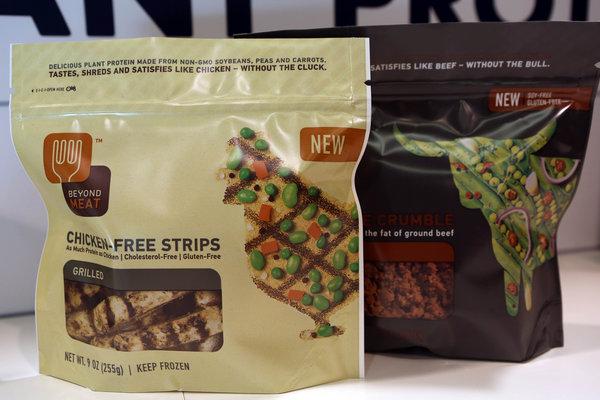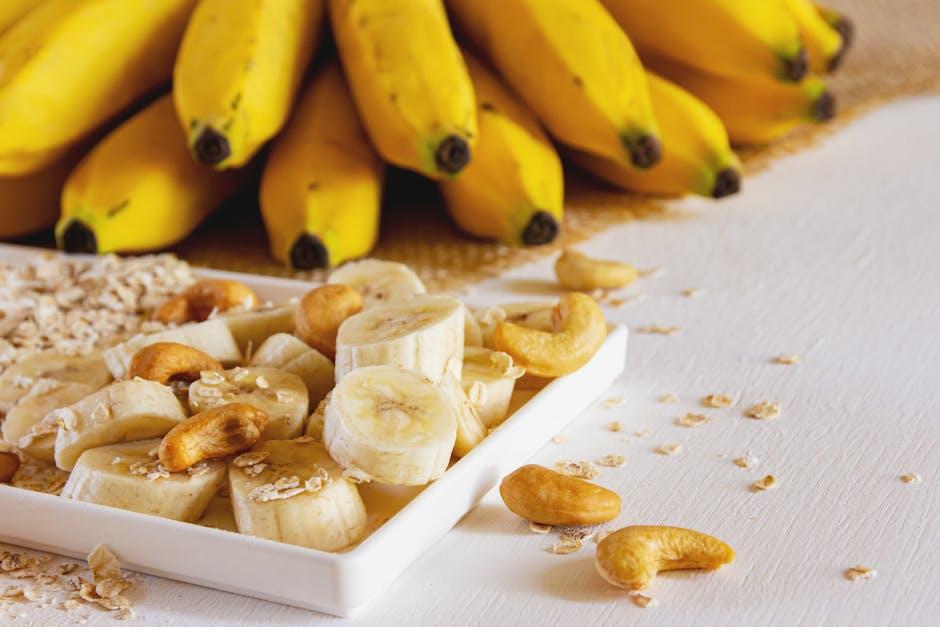In a world where dietary trends come and go like the changing seasons, the high-protein vegetarian diet has emerged as a beacon for those seeking to balance ethical eating with nutritional adequacy. Once confined to the realm of bodybuilders and fitness enthusiasts, protein has now taken center stage in the quest for optimal health. But can a diet devoid of meat truly provide the protein punch that our bodies crave? As more individuals turn to vegetarianism for reasons ranging from environmental concerns to personal health, the question arises: are high-protein vegetarian diets a harmonious blend of health and ethics, or do they pose hidden challenges that lurk beneath their plant-based allure? Join us as we delve into the science, benefits, and potential pitfalls of this intriguing dietary approach, uncovering whether it holds the key to a healthy lifestyle or if it’s simply another fleeting food fad.
Balancing Nutrients: The Foundation of a High-Protein Vegetarian Diet
Crafting a diet rich in protein without the inclusion of meat demands a thoughtful approach to nutrition. To ensure that your body receives all the essential nutrients, it’s vital to incorporate a diverse range of protein sources. Legumes, such as lentils and chickpeas, offer not only protein but also a hearty dose of fiber, which supports digestive health. Tofu and tempeh, derived from soybeans, provide a versatile base for meals and are excellent carriers of calcium and iron.
In addition to these, consider integrating a variety of nuts and seeds into your diet. Almonds, chia seeds, and hemp seeds are not only protein-packed but also rich in healthy fats and omega-3 fatty acids, crucial for brain health. Whole grains like quinoa and amaranth can serve as a substantial protein source, often overlooked in vegetarian diets. don’t forget the power of dairy or plant-based alternatives, such as Greek yogurt or fortified almond milk, which can round out your nutrient intake, ensuring you meet your daily protein requirements without compromising on other vital nutrients.

Exploring Plant-Based Protein Sources: A Diverse Palette for Your Plate
As the interest in vegetarian diets continues to grow, many people are discovering the rich variety of plant-based protein sources available to them. These alternatives not only support a sustainable lifestyle but also offer a wide array of flavors and nutrients. Legumes such as lentils, chickpeas, and black beans are staples in many vegetarian diets due to their high protein content and versatility in dishes ranging from soups to salads. Quinoa, often mistaken for a grain, is a complete protein and can be used as a base for salads or a hearty breakfast porridge. Nuts and seeds like almonds, chia seeds, and hemp seeds not only provide protein but also essential fatty acids and fiber, making them excellent snacks or additions to smoothies and yogurts.
Furthermore, tofu and tempeh, derived from soybeans, are excellent protein-rich options that can be marinated and cooked in various ways to suit different cuisines. Seitan, made from wheat gluten, is another popular choice for those looking to replicate the texture of meat. Additionally, edamame and green peas are not only high in protein but also bring a fresh, vibrant taste to your plate. Embracing these diverse plant-based protein sources allows for a colorful and nutritious diet, making vegetarianism not only a healthy choice but also an exciting culinary adventure.

Health Benefits and Considerations: Navigating the Vegetarian Protein Path
Embarking on a high-protein vegetarian diet can unlock a myriad of health benefits, while also presenting certain considerations. One of the primary advantages is the potential for improved heart health, as plant-based proteins often come with lower levels of saturated fat compared to animal proteins. Furthermore, vegetarian protein sources such as legumes, nuts, and seeds are rich in fiber, which can aid in digestion and promote a feeling of fullness, potentially assisting with weight management. Antioxidants and phytonutrients found in plant-based foods also contribute to reduced inflammation and enhanced immune function.
However, it’s important to be mindful of the protein sources you choose to ensure a balanced nutrient intake. Consider incorporating a variety of foods to meet your dietary needs, such as:
- Legumes: Lentils, chickpeas, and beans are excellent sources of protein and fiber.
- Whole grains: Quinoa, bulgur, and farro offer both protein and essential amino acids.
- Nuts and seeds: Almonds, chia seeds, and hemp seeds provide healthy fats and protein.
- Plant-based dairy: Options like soy milk and yogurt can be fortified with additional protein.
While navigating the vegetarian protein path, it’s crucial to monitor for any deficiencies, such as vitamin B12 or iron, which may require supplementation or careful dietary planning.

Practical Tips for a Nutritious High-Protein Vegetarian Lifestyle
Adopting a high-protein vegetarian diet can be a delicious and fulfilling journey if you incorporate a variety of plant-based protein sources. Here are some practical tips to help you maintain a nutritious balance:
- Embrace Legumes: Beans, lentils, and chickpeas are not only high in protein but also rich in fiber and essential nutrients. Incorporate them into salads, soups, or stews for a hearty meal.
- Explore Soy Products: Tofu, tempeh, and edamame are versatile ingredients that can be used in a variety of dishes. Marinate tofu for a flavorful stir-fry or enjoy edamame as a snack.
- Nuts and Seeds: Almonds, chia seeds, and hemp seeds are excellent sources of protein and healthy fats. Sprinkle them on your morning yogurt or oatmeal for an extra boost.
- Whole Grains: Quinoa, farro, and bulgur not only provide protein but also essential amino acids. Use them as a base for salads or as a side dish.
Additionally, consider pairing protein-rich foods with vitamin C sources, like citrus fruits or bell peppers, to enhance iron absorption from plant-based foods. By diversifying your protein sources and incorporating these practical tips, you can enjoy a balanced and nutritious vegetarian lifestyle.
Closing Remarks
In the ever-evolving landscape of nutrition, the question of whether high-protein vegetarian diets are healthy remains a vibrant topic of discussion. As we’ve explored, these diets can offer numerous benefits, from heart health to environmental sustainability, while also presenting unique challenges in ensuring balanced nutrition. Like any dietary choice, the key lies in thoughtful planning and individual consideration. As we continue to learn more about the intricate dance between food and health, the journey of discovery invites us to remain curious and informed. Whether you’re a seasoned vegetarian or simply exploring new dietary horizons, may your path be guided by knowledge and a balanced approach to well-being. As the plate before you reflects your choices, let it also mirror your commitment to health and vitality.




